August: Kerensky steps up crackdown on Bolsheviks
August continues on the tumultuous path to the eventual fall of the Provisional Government. Three political figures will play a decisive role this month, the start of which also marks the third anniversary of Russia’s participation in the Great War. The first of these figures is, of course, Alexander Kerensky, who was recently named head of the Provisional Government while retaining his post as minister of war. Kerensky’s last-ditch effort to win the war is marred by terrible inefficiency in the face of an army that refuses to fight and is increasingly siding with Vladimir Lenin’s Bolsheviks. Kerensky forms the Second Coalition Government in an attempt to reach a compromise between the left and the right – again, without the participation of the Bolsheviks who are facing a fierce crackdown.
Just as Kerensky forms his new government on August 6, General Lavr Kornilov becomes commander-in-chief of the Russian Army, a post he inherits from General Brusilov. Kornilov is a man of impeccable reputation and is feared by Kerensky for having political ambitions.
All the while, the Bolsheviks continue to gain momentum: the VI conference of the Bolsheviks wraps up on August 16, agreeing on a key strategy – an armed rebellion in Petrograd against the Provisional Government and a pursuit of the aims and objectives of the Revolution. This is a tactic that even Lenin had previously argued against, believing bloodshed to be unnecessary. But the meeting is a somber one; so many top Bolsheviks have already been arrested by the Kerensky government that the course of action is clear to everyone. Lenin himself is now in hiding, evading arrest.
The meeting also sets a course for the ‘Bolshevization’ of the Soviets. By mid-August, the party already counts 240,000 among its members, as well as 40 newspapers under its belt.
On August 14, deposed Tsar Nicholas II and his family, who have been under house arrest at their Tsarskoe Selo residence, are taken by train to western Siberia, away from tumultuous Petrograd.
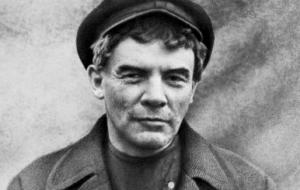
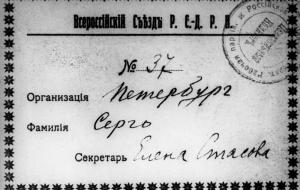
August 3, 1917
Mutiny on the German battleship Prinzregent Luitpold, as 800 sailors refuse to carry out duties and embarks on a hunger strike over poor conditions. Over in Petrograd, the Bolshevik Regional Conference votes to abandon the party’s demand for a complete transfer of power to the soldiers and workers of the Soviets – a decision based on Vladimir Lenin’s analysis of the political situation. The Bolsheviks, however, will not lose any influence with the Soviets. In fact, their political clout will only continue to grow.
August 6, 1917
A new Coalition Government is formed under Alexander Kerensky, now both Prime Minister and Minister of War. Bolsheviks are not included again. The organization is now actively pursued by Kerensky who intends arresting its top leaders and capturing Vladimir Lenin, who is in hiding.
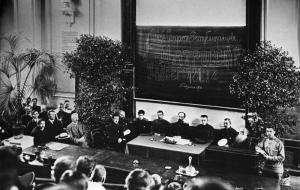
August 14, 1917
Former Emperor Nicholas II together with family and servants is put on a train, with the final destination to be Tobolsk – the historical capital of Siberia. Nicholas has been living in Tsarskoe Selo under house arrest, too close to the unrest in Petrograd. As anti-government sentiment begins to gather pace in the capital, the Provisional Government believes it best for the Royal family to be relocated. The city of Tobolsk has been chosen for its relative political calm and the absence of a railroad. The Royal train will arrive at the city of Tyumen in three days time where a ferry is to take them further on to Tobolsk.
August 23, 1917
Vladimir Lenin, disguised as a stoker, attempts to cross the Russian-Finnish border on a train, evading all border checks. At the border, the conductor cunningly decides to detach the carriages in order for the engine car to be refilled with water a few hundred feet away. All the while, Lenin stays with the conductor. They count on border guards to not venture as far to inspect the steamer. The plan is a success.
After the recent Bolshevik attempt at seizing power in Petrograd, a strong crackdown is launched. Lenin, along with 40 prominent Bolsheviks, is being hunted down by Alexander Kerensky and his Provisional Government. The Bolshevik leader hides out on the banks of the Razliv Lake, finally taking shelter in a now-iconic shack. Several experienced and loyal underground Petrograd workers are then put in charge of making arrangements for the eventual trip by railway. On August 21, in the dead of night, Lenin is taken through woodland and swamps to a station that would take him back toward a Petrograd suburb. There, he is to eventually board another train. By the morning of August 23, Lenin, in his stoker disguise, is en route to Helsingfors.
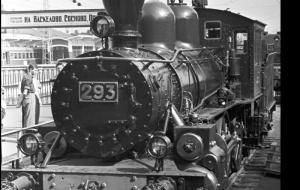
August 25, 1917
Moscow hosts a government panel at the behest of the Provisional Government and attended by over 2,000 delegates, amid the chaos in the capital of Petrograd and the situation on the front line. General Kornilov attends and is given a hero’s welcome. Kerensky is growing wary of Kornilov’s popularity and influence among the people and delegates, despite their alignment on the issue of the dangers of Bolshevism and the acute need for restoring order and discipline in the military.
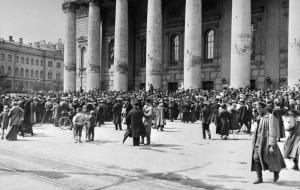
-
1 August
-
3 August
-
6 August
-
14 August
-
23 August
-
25 August